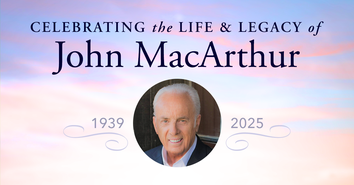Does Christian Music Stink?

The truth, of course, is that cafeteria food doesn't always stink and neither does "Christian music." What I've learned after 15 years of observing the CCM business from the inside is that what stank wasn't the music or the artists but the actions of those who constructed an industry that almost guaranteed that songs created in it never made it to the ears of people who weren't interested in Christianity.
Why didn't "Christian Music" stink for the past 30 years?
Several reasons: First, talented artists who almost got started in CCM went on to become megastars in the mainstream market. Both King's X and MC Hammer were considered and rejected by the CCM label Frontline. More recently, pop stars Hanson and Jessica Simpson were passed over by CCM labels before they signed mainstream deals.
Second, many artists formerly in the CCM market have gone on to successful careers in the mainstream. Julie Miller and Sam/Leslie Phillips are but a few who have made the transition successfully.
But the most compelling evidence is in the songs themselves.
CCM was structured not for crossover, but to be marketed and listened to by other Christians. But once in awhile, somebody forgot to read the memo from headquarters and took it upon themselves to allow the music made by devout Christians to actually reach real, live non-Christians.
In 1990, Claire West-Parr, an executive at Geffen Records, asked for permission to market Michael W. Smith's song Place In This World to mainstream radio. She was turned down. That wasn't the purpose of the distribution deal between Geffen and Reunion, she was told. It was strictly to place records in stores, not to "work" them at radio. She threatened to quit and was allowed to "work it" on her own time. She did and the song reached No. 5.
Bob Carlisle's song Butterfly Kisses would have gone unheard by the mainstream culture were it not for a radio program director whose daughter heard the song at church.
And Jars of Clay's Flood and Sixpence None The Richer's Kiss Me both made it to the top of the pop charts in part because of a young man named John Butler, who pitched his artists to radio stations without using the "Christian music" tag, which the mainstream has come to loathe and use as a reason not to play songs. One program director admitted that he wouldn't have been open to playing the song had he known it came from the world of CCM.
And those were the lucky ones. The major reason "Christian music" never stank was the songs themselves, many of which deserved to be mainstream hits had the artists not been surrounded by executives who did precious little to bring their music to the masses. And that's too bad -- there were hundreds of songs that could have been heard by the wider culture.
Long before Butterfly Kisses, Kiss Me and Flood there was Randy Stonehill's Coming Back Soon, Sweet Comfort Band's Falling In Love With You, Bruce Hibbard's Never Turning Back, The Imperials' Fallin', Kenny Marks' The Party's Over, Roby Duke's Fight The Fight, Chuck Girard's Plain Ol' Joe, Billy Sprague's If I Know Love, Richie Furay's Endless Flight, Charlie Peacock's Put The Love Back Into Love, and hundreds of other cool songs which would have connected with music fans regardless of their religious orientation.
Much of the music emerging from the CCM community didn't stink; what stank was a system that insisted on calling it "Christian music," which immediately created barriers and invited rejection in the same way that labeling music "Buddhist Music" would keep that music away from Christians.
Rebecca St. James, Jennifer Knapp, Delirious?, Mark Schultz and dozens of other talented artists don't stink either. But they have yet to be given a fair shot to be heard by the mainstream of American life because of executives who still seem unwilling or unable to help their artists reach the ears of non-believers without the marginalizing tag "Christian artist." But living heroes like Claire Parr and John Butler, who set aside such labels and worked hard to allow excellent music made by followers of God to be heard by those who seem to have no interest in Him, are living examples that it can and must be done.
To be sure, some CCM executives are now trying to accomplish just that, but the very success of the CCM industry in identifying itself as a separate genre, one now owned by "secular" conglomerates, make such attempts almost impossible. After all, mainstream conglomerates bought up CCM labels because they were separatist religious labels with their own built-in audiences, not because they needed help creating rock music for the mainstream.
Therein lies the challenge that faces an industry that was constructed on separatist principles, and which now faces a membership that no longer believes in separatism. And until the dilemma is sorted out and dealt with, talented artists, and a culture deprived of their voices, continue to suffer.
Originally published July 26, 2001.







